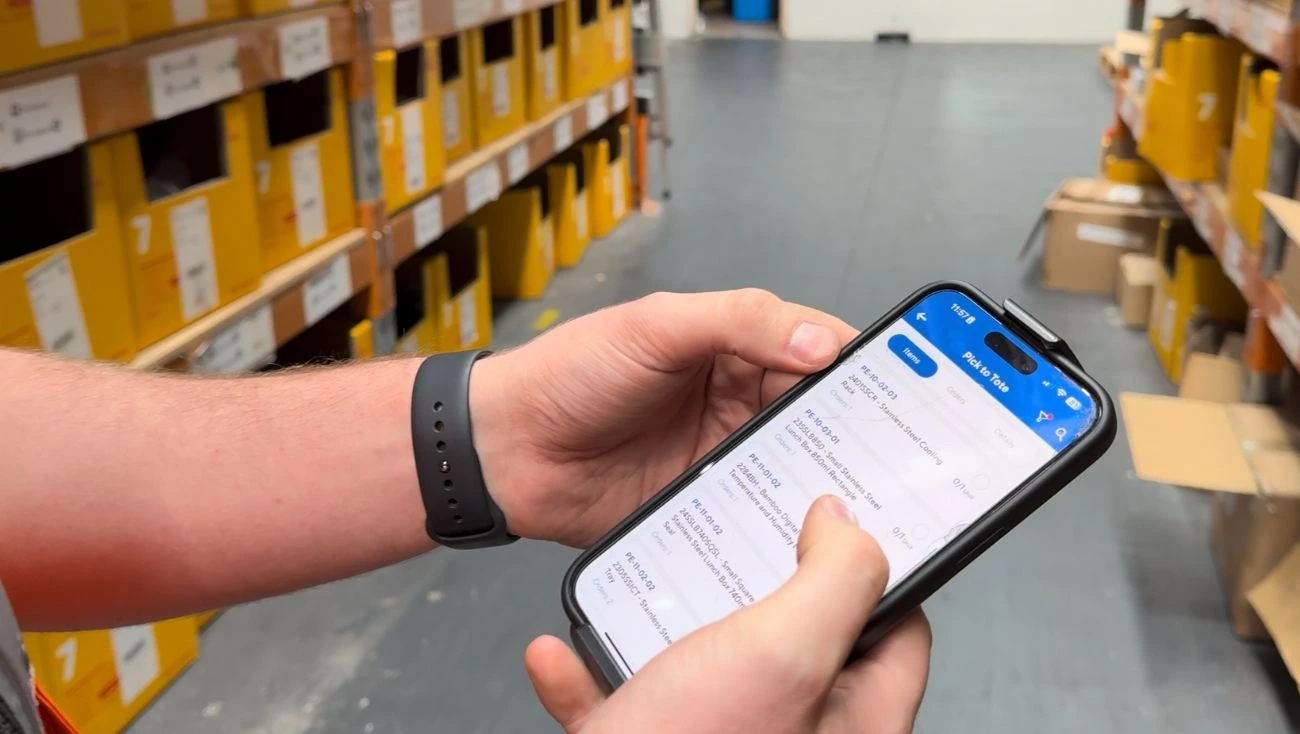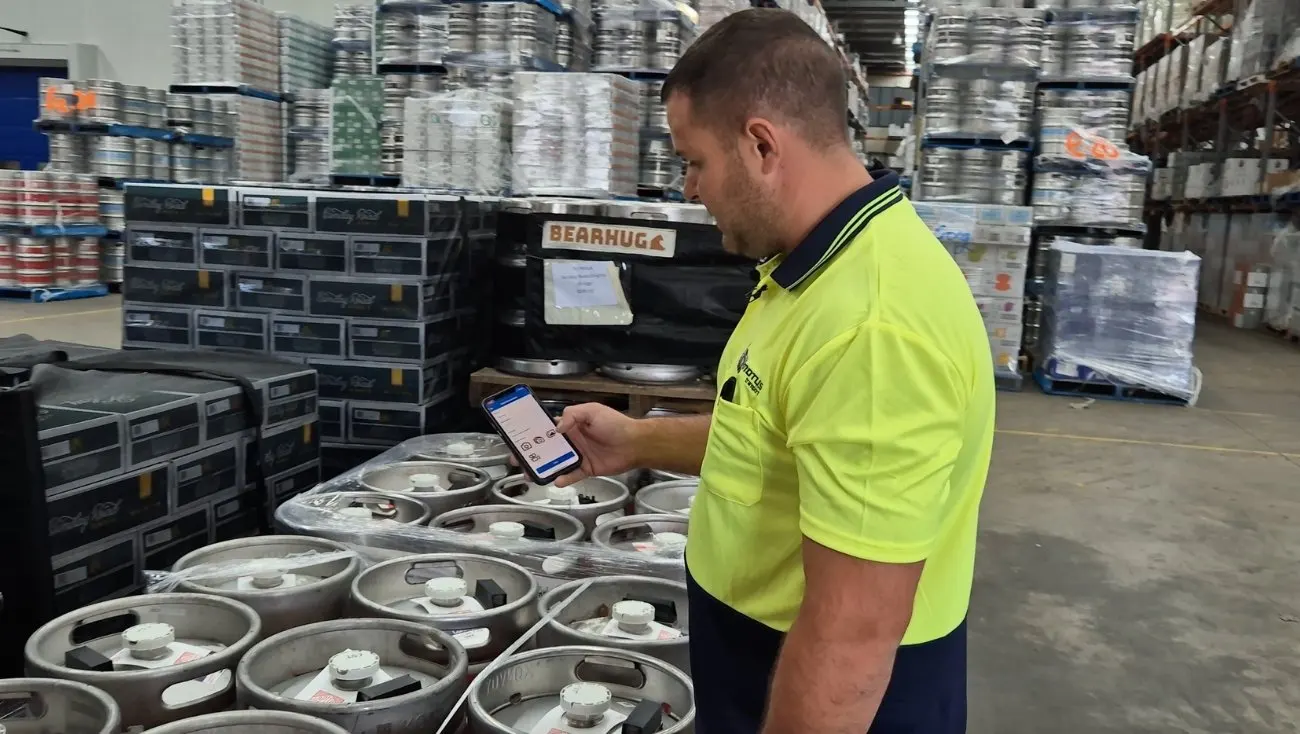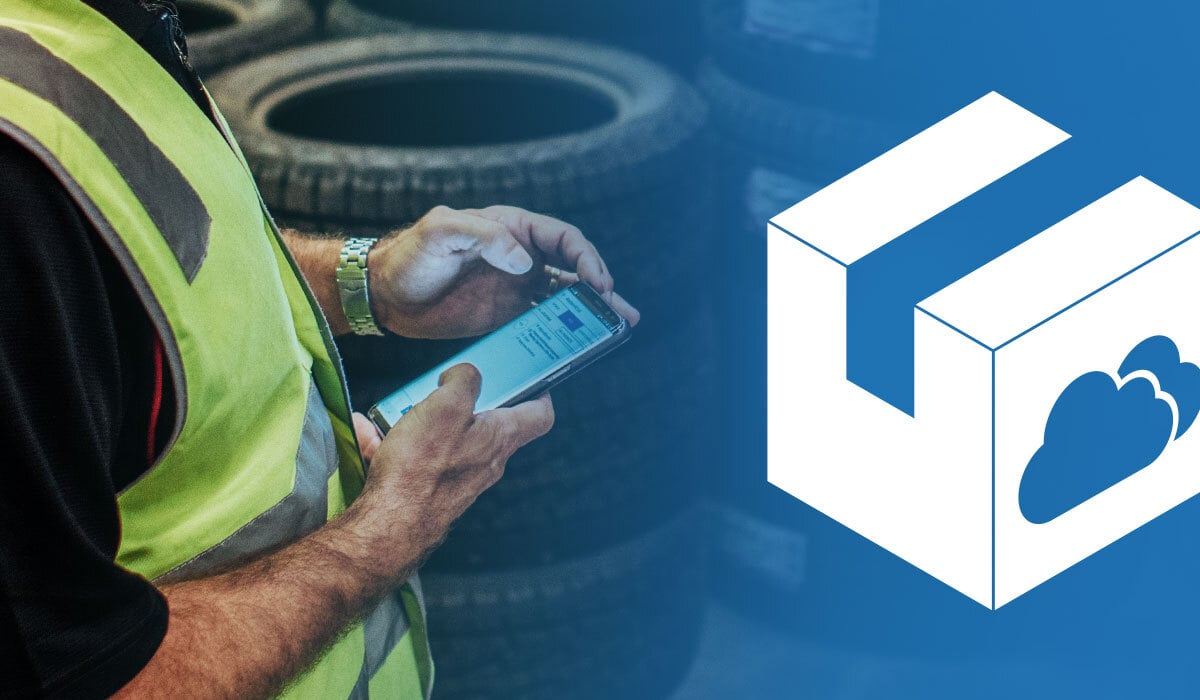The Logistics People - EP002 Liquex Logistics

Tony:
Hi guys. Tony here from CartonCloud. I'm actually here with Ryan Thompson from Liquex. We're here on site in Victoria, and I just wanted to have a bit of a chat with Ryan about the industry and how you got in the industry, and how long have you been, and along those sorts of lines. So tell me, this place originally was started up by your father, yeah?
Ryan:
Yeah. So late seventies, he started a business and he could see there was a real niche in logistics for someone to provide beverage logistics. So for small to midsize wine distributors, brewers, that sort of thing. So we've been doing the same thing for three decades, but I think now we've, as a business, we got to a point now where we're doing it as best we ever have. I think a lot of that's through having CartonCloud as our software provider.
Ryan:
So for me, I've been in and around warehousing and forklifts and trucks and we're about to get hit by one now, since I was about five or six. So I've always been in and around the business, in and around these environments. So it's kind of second nature for me. So yeah, I've really had no choice in the matter. I've sort of been here and this is the way it is.
Tony:
Yeah, well, it's like I said. I sort of fell into it as well, when I was a young fellow. So growing up in trucks, you would've seen a lot of things change over the years.
Ryan:
Yeah. A lot of things have changed. But then, as I mentioned before, a lot of things have maintained and been the same as well. So, we still fight the daily battle of paper consignments and relying on drivers to do the right thing. And there's still a lot of similarities that I can see we were having 20 odd years ago. But I think now for us, Liquex, we're prepared, or we're willing to operate in a different way. So a bit more of a modern way of operating. So if we can change our processes to be better and to be more professional, then I think that's probably something which other people might be able to follow suit with us. To improve the whole small to mid logistics companies.
Tony:
And I think the key to being a transport company these days is to constantly evolve and constantly update and change process. I showed everybody with the colored cones you guys have done. A really simple process but very effective. And when everybody knows ... I was also saying that it's really good when you walk around in a warehouse, everything is planned. The housekeeping is done. So it must be proud for you to walk through your fridge area and even your outside areas and see the jobs you guys actually do.
Ryan:
Yeah. As a forklift goes on by. Yeah, look, simple processes, where we colored cones or keeping the place neat and tidy, and making sure that we pick an order the same way every time we do it. We unload a truck or we load a truck the same way, following that process. If everyone knows how it works, we can be more consistent in the end result, which is what we need to be. So we're here five days a week, so compared to a footy team, every day is game day, basically. So I liken our team to a sporting team. So each day is game day. You've got to be prepared, you've got to be organized, and we've all got to know what we're doing. That way, we can be reliable and successful in the overall operation.
Tony:
Yeah. So I can see you've got good relationships around here with your staff. Everybody loves a bit of banter, as I see. As we're walking on past. Like I said, I don't think anybody's going to let you live the fact down that we're sitting here having a chat.
Ryan:
I'll never live this down, no.
Tony:
On camera, which is always a good one.
Ryan:
No.
Tony:
So, who were your mentors in the industry, as you were coming up through?
Ryan:
Yeah, so obviously the old man started the business, so obviously he's had an influence on how I operate. Good or bad or indifferent, that's just the way it is.
Tony:
Yeah, yeah, yeah, that's always the way.
Ryan:
Again, I had some uncles that used to work here as well. Back in the mid nineties. I had friends. It was more of a family business back in the day, but now it's ... I've had to find staff and build relationships with them to mirror that of the family business. So yeah, there are guys here, and girls, who have been here six, seven, 10 years. Got some drivers here that have been here 20 plus years. So I spend more time with these guys and girls than I would my own family. So it's really important to have those good relationships with your staff, it just makes things run. People enjoy coming to work, basically. There's no need to be stressed out or freaked out. So yeah.
Tony:
And I think, we were talking before that you're always learning something new every day.
Ryan:
Correct.
Tony:
And you can learn from anybody.
Ryan:
Correct.
Tony:
And it was one of the philosophies I put in with my team, running operations was; if you've got something to bring to the table, bring it to the table. Let's give it a go. If it doesn't work or if it doesn't fix the-
Ryan:
Try something else.
Tony:
We'll try something else. Have you found that to be effective?
Ryan:
Yeah. So yeah, look, I learn from everyone. So it could be a new starter, who starts yesterday, works in the warehouse, picks orders. He or she might come to me with an idea that they've seen, or they think will work. We'll take it on board, we'll trial it. If it works, it works. If it doesn't, it doesn't.
Tony:
Hey guys, sorry. We just had to throw a cut in the middle of that one because as always in logistics, we were behind two pallets or in front of two pallets, which had to go out on the truck. But anyway. So we were talking about it being a family business, and off camera, I actually asked if your dad was still around, or if he's in the business. And you told me that he still is.
Ryan:
He's still here, yeah. He's still physically in the office, in there. So just keeping a watchful eye on things. So he's enabled himself to have less involvement now, less day to day involvement. So he doesn't have to get on a truck or forklift anymore, or do a delivery or ... And his 30, 40 hours a week of checking off invoicing has reduced to about two hours a week. So he can work whenever he wants, basically. Which is good when you get to 66 years of age. You should be able to pick and choose when you want to work.
Tony:
And like I said off camera, was; a lot of the times, for people who, the business has been their life, they find it really hard to step away. The people in their sixties and seventies who have been doing it for, as your dad has, 30 years, it's really hard to hand over the mantle or to step away because it's become more than their business. It's nearly their hobby. So you've found that to be the case?
Ryan:
Yeah, it's been a challenge. Look, I'm 36, and I'm quite happy to delegate a bit more than maybe what the older generation might've been able to do. So I think that's probably a more successful way of running any organization, is the ability to delegate and trust others. And you can't trust everyone to do important stuff, but you pick a core group of four or six people that you can rely on, that you know will do the right thing. Show integrity and that sort of stuff, which makes ... It doesn't make it as much of a burden as running an operation as it probably traditionally was. So I could still occasionally go on a holiday, but not as much as I'd like to, but that's just a part of 2020 and going forward, being able to have a bit more of a balance, in terms of your work life.
Tony:
Yeah. Yeah. And it's one thing I always bring up on Tony's Tips and things, is that most operations people don't get to go on holidays. You can't take a four week break because you don't know if things are going to work right, you don't know if things are going to get charged right, you don't know if the invoices are going to go out on time. Or if you do take that break, you wake up at 6:30 in the morning, you look at the clock and you think, "I hope that truck's there on time". Because I know that they're going to do that. So you eat, sleep, live and breathe it.
Ryan:
Yeah. I'm always working. I may not physically be here, but part of even this morning, I woke up about two in the morning, thinking about work for 15, 20 minutes. So now I'm a bit more comfortable in just knowing that if I'm going to take on this role and do this job, it's all-encompassing. So yeah, you're always thinking about work, and it's being able to use those thoughts and those energies in a more effective way, as opposed to just feeling stressed and worn down. That's the challenging part of this sort of job.
Tony:
Yeah. And no doubt your dad would have seen a lot of change, and as would have you, where it's gone from handwritten [connotes 00:09:12] hand rated connotes for pretty much most of the time.
Ryan:
The carbon copy-
Tony:
Yeah, the carbon copy.
Ryan:
Which we phased out a few years ago. But look, I've got no doubt there's still businesses that operate like that.
Tony:
Yes. Yeah, there definitely is. Definitely is. I see them all the time.
Ryan:
Yeah. And there's an inherent fear of change that if people just took that step forward in the more modern direction, so signing on glass and using the warehouse system to run your warehouse, you'd be a lot better off. But it's just being able to take that step forward, which is probably the hardest thing, I guess, for a lot of people.
Tony:
Yes. And there always seems to be a ... Well, at the moment, and I believe for the next few years, there's going to be always a combination of paperwork and technology to do what the old school guys and gals did on the carbon copy. I've always found that the signing on glass can get rid of the consignment notes, but people do like to shuffle consignment notes. It takes them a while to, after holding them in their hands for 20 years and putting them in pigeon holes to then being able to rearrange them on the screen. A lot of people do find that very, very challenging.
Ryan:
Yeah. Our main transport guru here, he's been with us 25 years. Heavy reliant on paper, pigeonholes, people's names on the pigeonholes, manually counting stuff. I was a bit concerned that he would struggle with the software, but within two weeks, he was all over it. And he's not perfect, but he does it enough to get through the day and even now he will acknowledge that this is a better way going forward. So he's 49-ish. Heavily reliant on paper, but now he loves it.
Tony:
I did notice the pigeonholes are empty.
Ryan:
They are empty. That's a relic of the past, but it's just there.
Tony:
Yeah, absolutely.
Ryan:
It's going to get burnt at some stage [crosstalk 00:11:18] we'll have a burial for it.
Tony:
So, you were saying that you'd like to go completely paperless down the track. Now, that's obviously not getting signatures on your customer's connotes. Is that what ... Thing? Or what do you envision there?
Ryan:
At the moment, we still apply a customer invoice, an invoice enclosed satchel on the stock, key cart or pallet. There are some DCs that still want their paperwork, which I understand. But in terms of getting signatures, we're 90% paperless, which is really good. So yeah, I don't want to do everything at once. I understand we've got to phase it out eventually. So we're starting a dialogue with our clients, like, 2020, that's our aim, to go paperless. But if there's two or 3%, then we're happy to work in with what our clients want.
Tony:
Yeah, yeah. So the more, the better.
Ryan:
Yeah. Because every bit of paper we generate, I would anticipate there's probably 10 minutes of handling of someone. Whether it be a driver, our admin staff and internally. So not each paper is 10 minutes, but yeah. It's time that we can better use doing other things.
Tony:
Yeah. And to me, in this day and age, it's still very surprising that you go into a DC and they will get the paperwork and they will stamp it with their big red stamp, put their signature and their little code in there, and then want that to be sent off with their invoice to ... I find that these days just crazy.
Ryan:
Yeah, it's a little bit contradict ... In terms of these, the bigger Dcs that make hundreds of million dollars a year. And they still want that bit of paper to verify it's been delivered. When that bit of paper comes back, we'll take a picture of it. I mean, you've told me another way I can do it as well, in terms of scanning it and uploading it to our consignment regenerator. So all the paper that does come back ends up on CartonCloud in some shape or form, which is good.
Tony:
Yeah, yeah. Yeah. And I suppose the other good thing is; you don't have to have the old compactor files full of all the PODs and the cardboard boxes we used to fill up with PODs, put the dates on them, stick them on a pallet, stretch wrap it and put them up in the warehouse.
Ryan:
No, we just got an industrial shredder now, so we're gradually working through all the paper in the place. But again, as I said, we're happy to work with people if they still want paper, but our aim is to go paperless sooner rather than later.
Tony:
Yeah, yeah, no, well it's good. And I actually must admit I've enjoyed walking around your warehouse. There's lots of good little tips and tricks there, which we pointed out to a lot of people today. And no, it's been a pleasure, and thank you very much for having us.
Ryan:
Thanks for coming down.
Tony:
All right, cheers.
Ryan:
Thank you.
Tony:
Okay guys, we'll leave it at that, and see you next time. Cheers.
Transcribed from video
Visit their Website - https://liquex.com.au/
Subscribe to CartonCloud




.webp)
.webp)
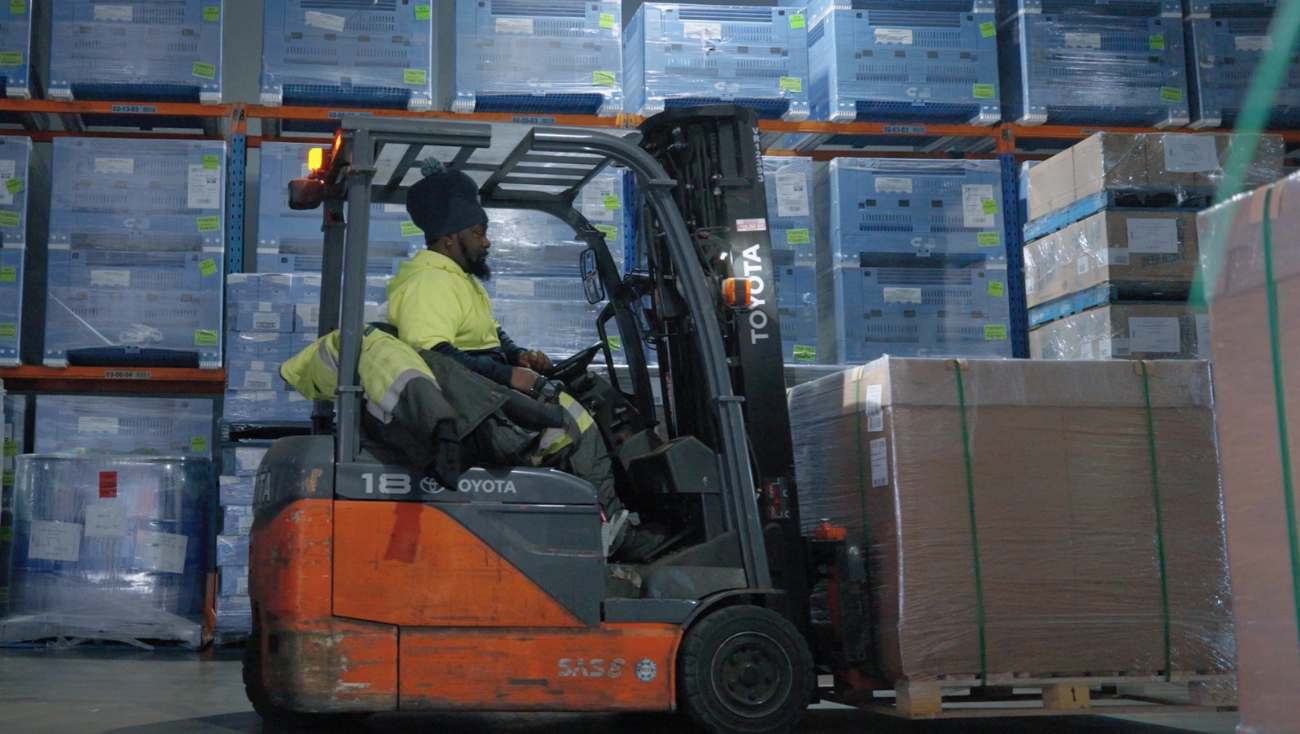
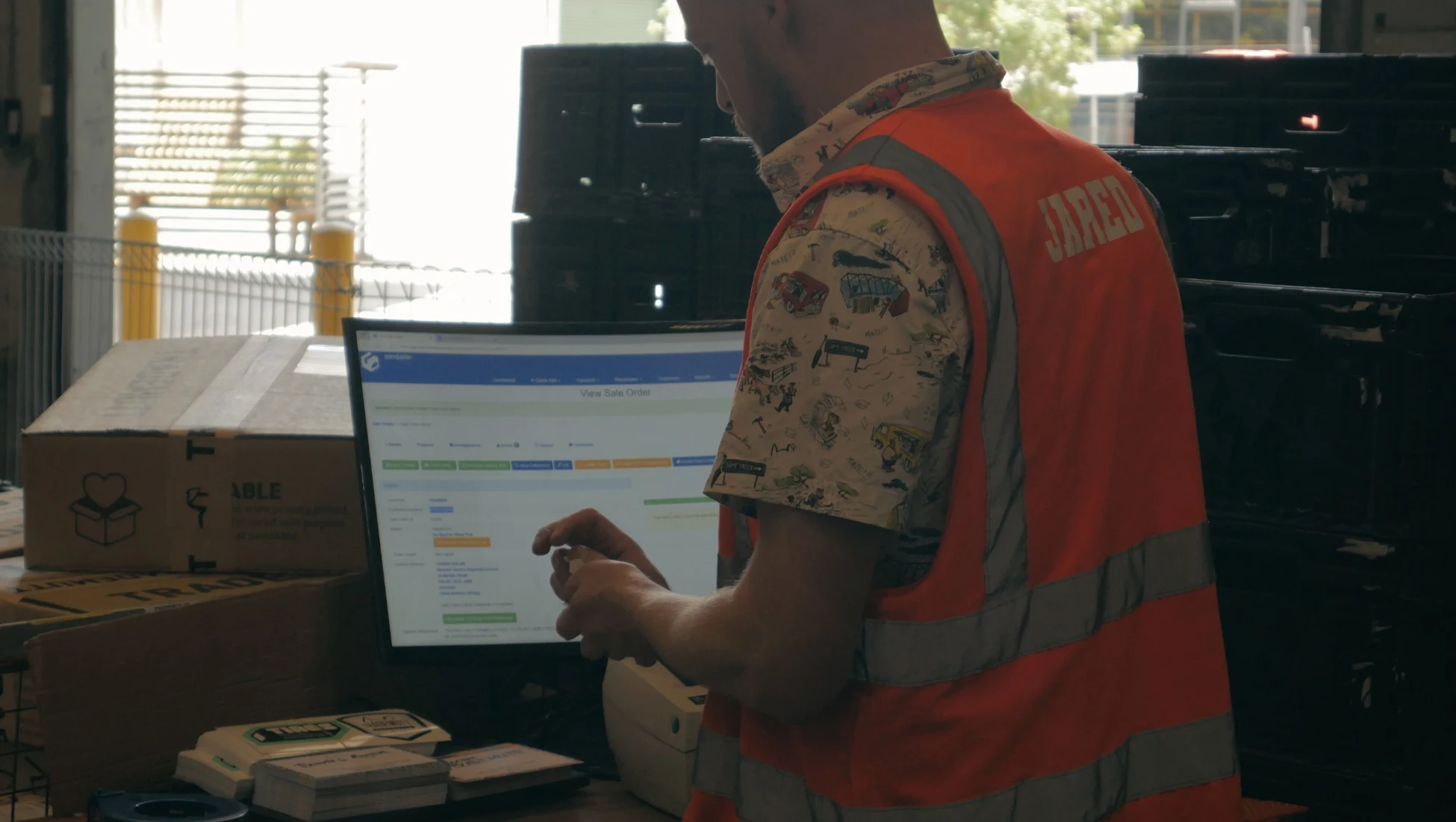
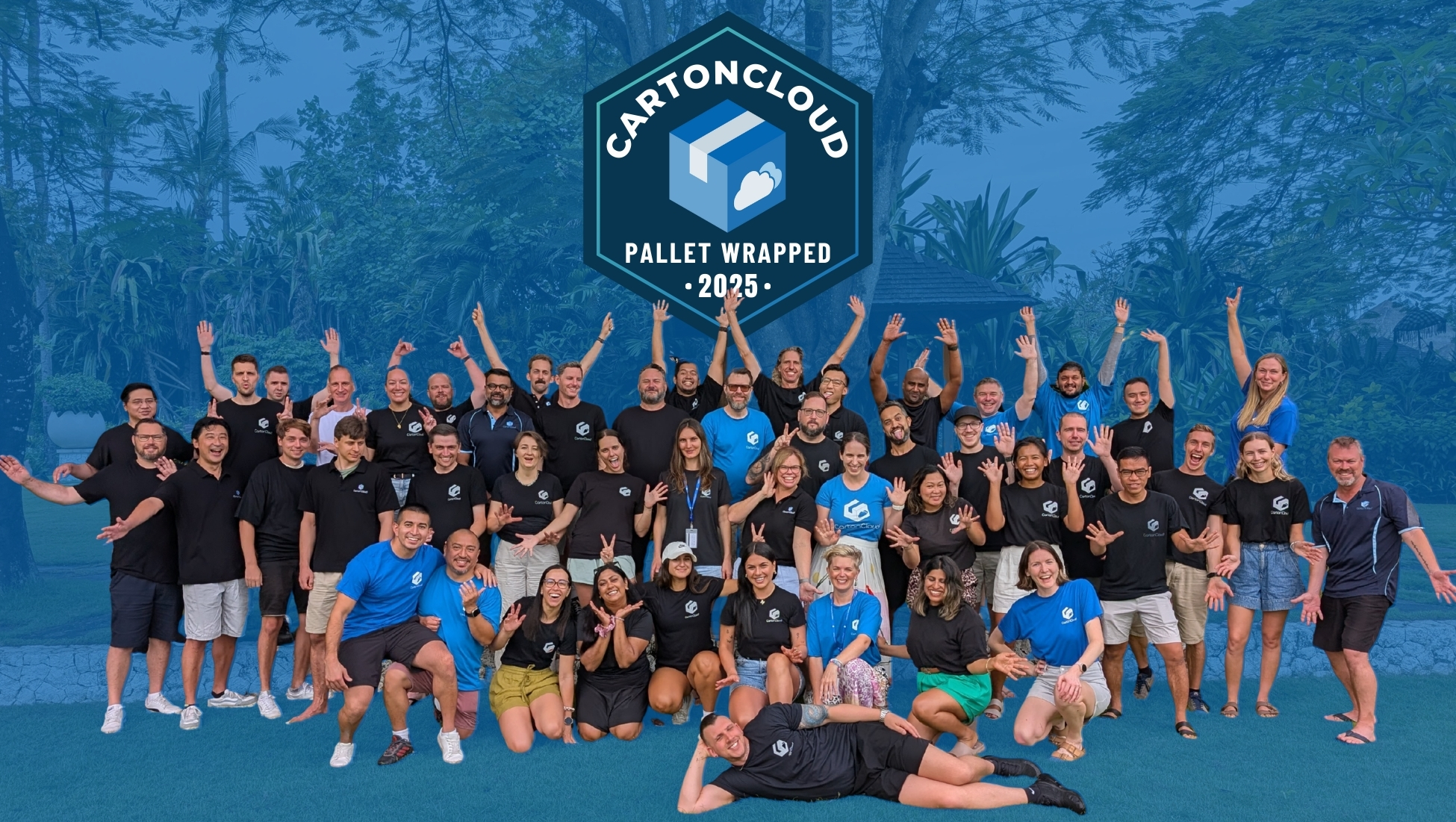
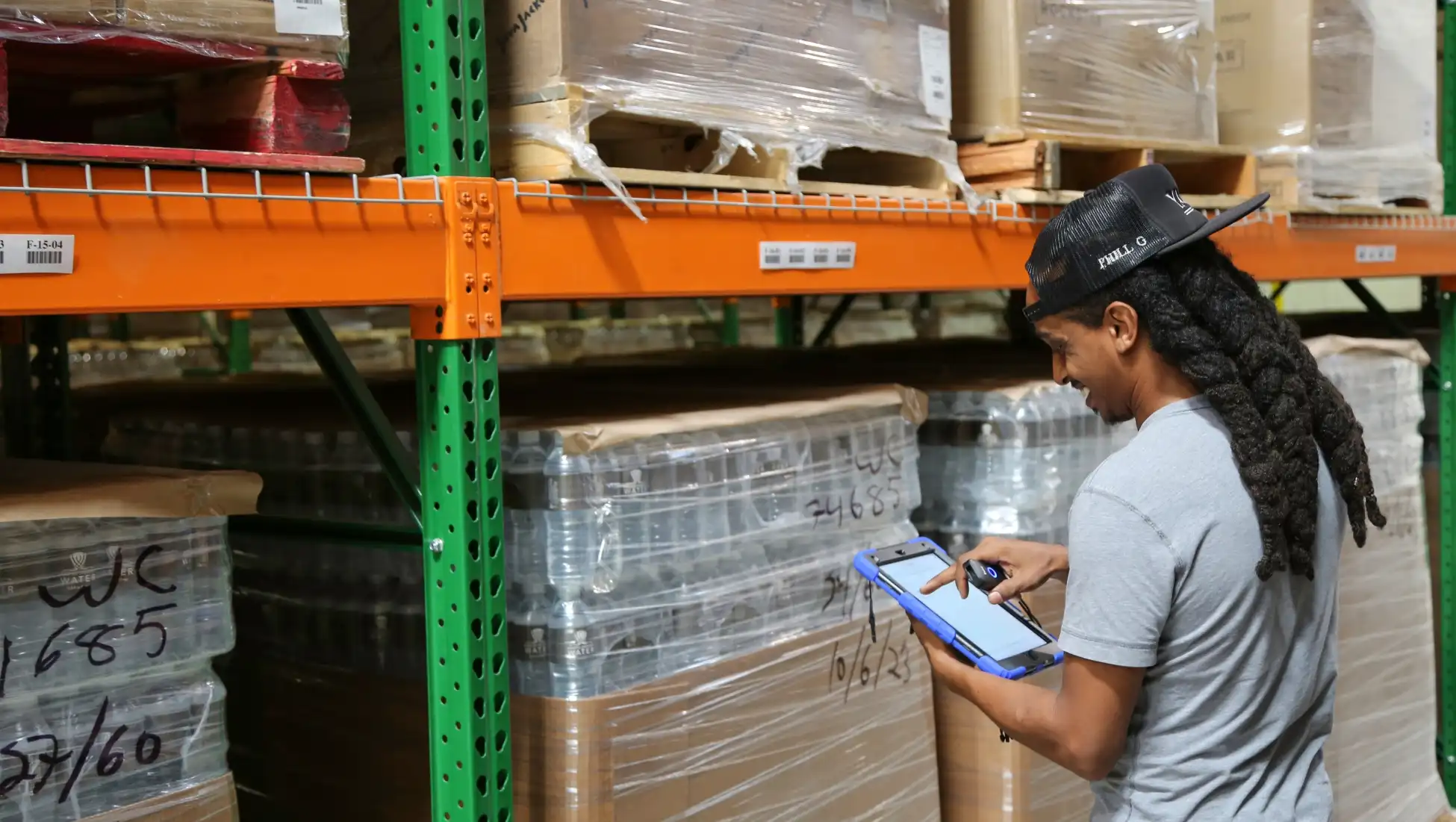
.webp)
